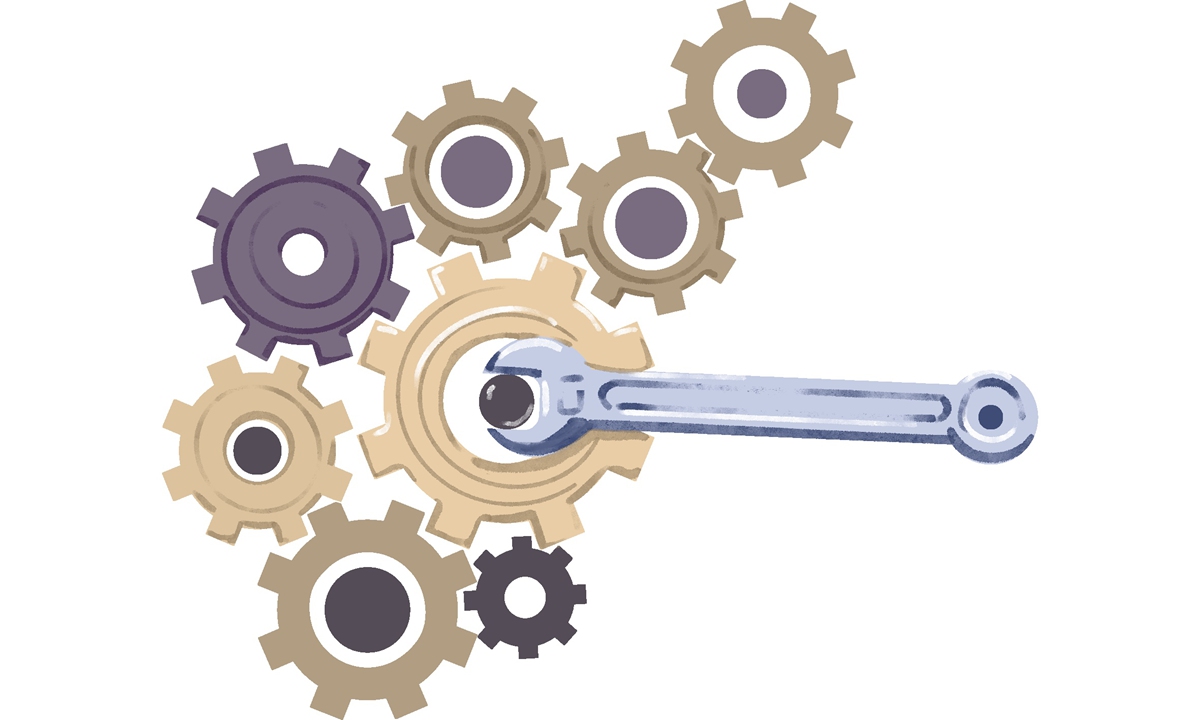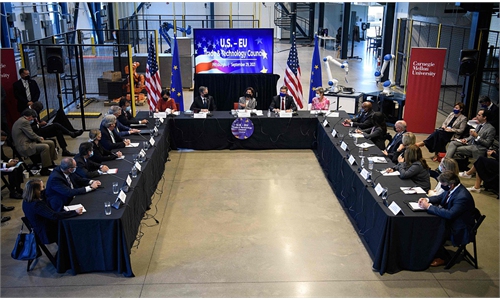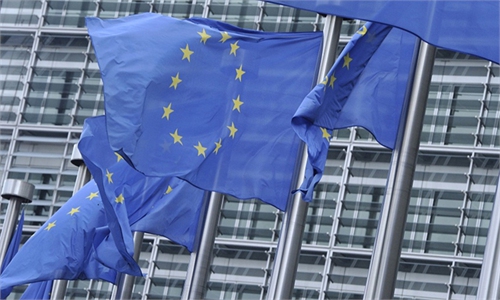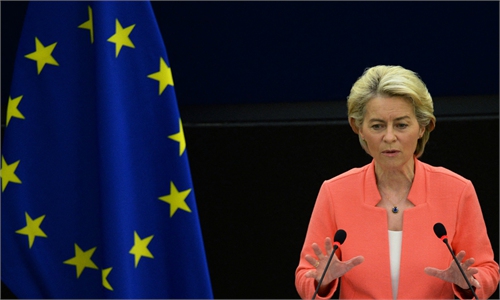COMMENTS / EXPERT ASSESSMENT
Time for EU to move forward with ratification of CAI with China

Illustration: Tang Tengfei/Glaobal Times
After a period of turbulence in bilateral relations, China and the EU appear to be ramping up diplomatic communication and exchanges.It has been reported that Chinese and European leaders are scheduled to hold a virtual summit on Friday. This would mark the first time a direct conversation will take place between the leaders of the two sides since the end of 2020 which will be a critical step in allaying each other's concerns and stabilizing bilateral ties.
China-EU relations have been on a rollercoaster over the past several months, especially since US President Joe Biden took office in January. The two sides enjoyed steady ties last year despite the COVID-19 pandemic with frequent diplomatic exchanges and concrete cooperation between them. Most notably, after years of negotiation, the two sides reached the China-EU Comprehensive Agreement on Investment (CAI) at the end of last year.
However, since then bilateral ties have gone downhill, particularly after the EU in March slapped sanctions on Chinese officials over so-called human rights abuses in Northwest China's Xinjiang Uygur Autonomous Region, which prompted countersanctions from China. In May, the European Parliament voted to freeze the ratification of the CAI, which represents the clearest sign of rising diplomatic tensions between the two parties.
But over the past several weeks, there are signs that the two sides are starting to enhance communication and trying to address certain areas of dispute. Before the leaders' virtual summit on Friday, senior officials from both sides also held talks covering key areas, including bilateral ties and global climate change.
On September 28, Chinese State Councilor and Foreign Minister Wang Yi co-chaired the 11th round of high-level strategic dialogue between China and the European Union (EU) with EU High Representative for Foreign Affairs and Security Policy Josep Borrell Fontelles via video link.
The two sides touched on several hot topics, including human rights protection and the Taiwan question. Borrell said that the EU respects China's sovereignty and has no intention to lecture China, according to a statement from China's Foreign Ministry.
On September 27, Chinese Vice-Premier Han Zheng and Frans Timmermans, executive vice-president of the European Commission for the European Green Deal, held the second High-level Environment and Climate Dialogue between China and the European Union via video link, during which both sides agreed to deepen green cooperation, according to the Xinhua News Agency.
For anyone who is concerned about the China-EU ties, these high-level meetings represent a very positive trend. However, that's not to say that several meetings would resolve all the differences between China and the EU. China-EU bilateral ties will almost certainly face difficulties in the future as anti-China forces within the US government keep meddling the EU affairs.
However, those differences should not undermine mutually beneficial cooperation in areas such as climate change and trade and investment. Allowing such cooperation to be held hostage to politics would be a grave mistake for both sides. Even the US appears to be increasingly realizing that fact, and the Biden administration has suggested that the US is seeking a "re-coupling" with China after a failed and costly trade war.
The EU has greatly benefited from its pragmatic approach to enhance cooperation with China. The CAI is a landmark deal that will significantly boost cooperation and benefit Chinese and EU businesses. In light of the recent positive signs for increased diplomatic exchange between the two sides, it would be a wise move for the EU to push forward the ratification of the deal. That not only makes sense economically but also diplomatically.
The author is a senior editor at the Global Times. bizopinion@globaltimes.com.cn




